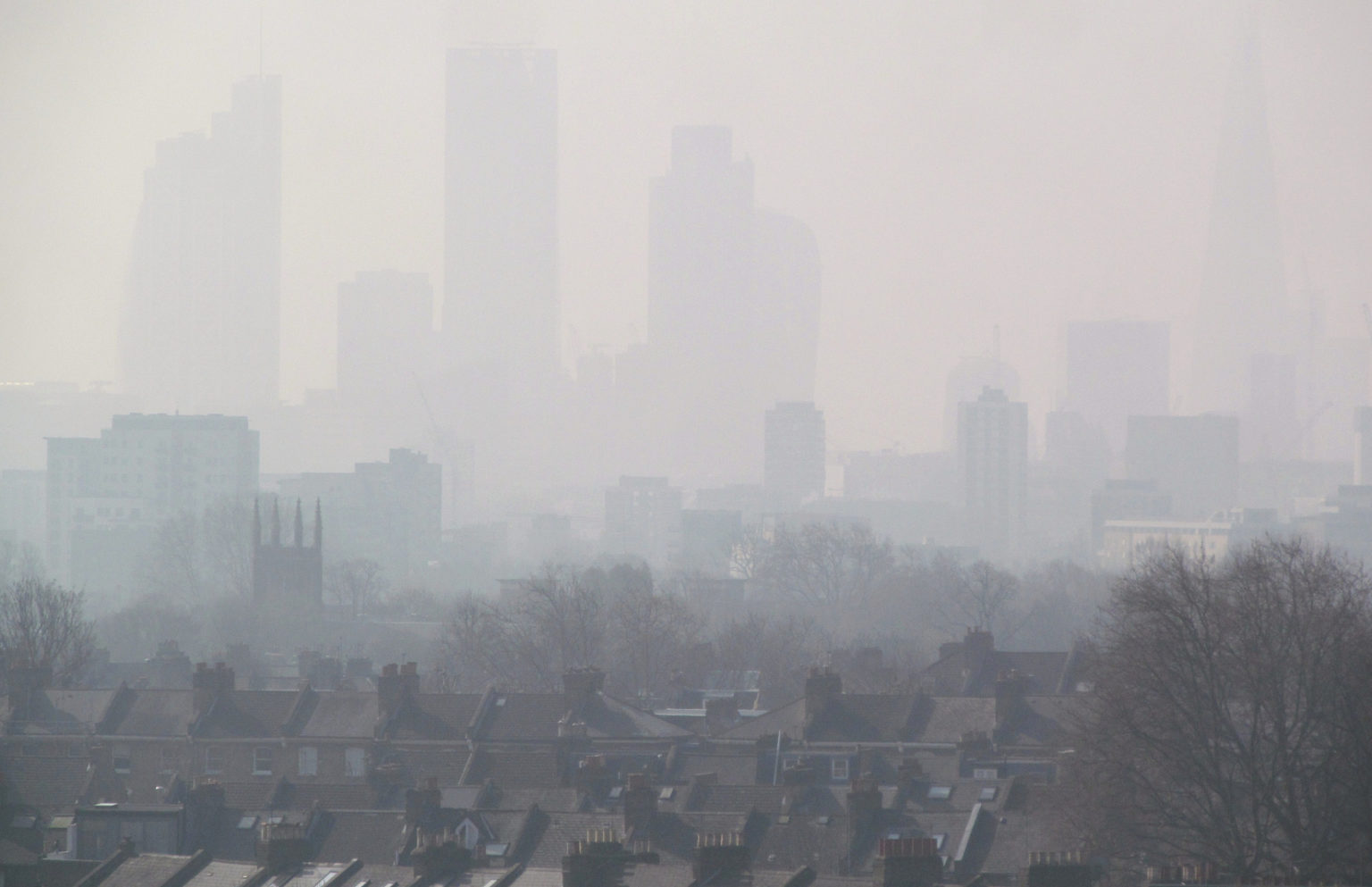The UK government hates to be held accountable in court when it breaks environmental laws like those on air quality. So it has created new rules – coming into force this week – that expose environmental litigants to unlimited financial liabilities, writes Oliver Tickell of The Ecologist. Now three leading NGOs have gone to the High Court to argue that the rules themselves are in breach the UK‘s international obligations.
New rules coming into force today will make it virtually impossible to bring a public interest case – like ClientEarth’s air pollution challenge – to protect the environment.
The new rules weaken financial protection for people or organisations bringing a case against the government, meaning they risk having to pay the government’s full, unlimited legal costs in return for going to court to protect the environment.
The current rules cap the costs that individuals, community groups and environmental groups have to pay on losing a case against a public body. These caps are currently £5,000 for individuals and £10,000 in all other cases.
But under the new rules, claimants will have to provide the court with information about their personal finances when applying for Judicial Review. Even if judges decide to set a ‘cap’, or upper limit, on the costs that litigants could be held liable for during the proceedings, they will be able to increase the cap at any stage.
The change in rules therefore makes it impossible for public interest litigants to know how much a case will cost from the start. Individual campaigners and charities could therefore find themselves facing costs of tens or even hundreds of thousands of pounds for a High Court action.
Costs would only increase if they were to appeal an unfavourable initial judgment to higher courts. Even a High Court win could prove disastrous: if it were to be appealed by the government, they might be unable to afford to defend it given the enormous potential costs of litigation in the Court of Appeal, and the Supreme Court.
They could then be forced to abandon their case, and be held liable for the government’s costs to date, even if they were actually winning the case up to that point.
‘Unlawful’ Rules
In response ClientEarth, Friends of the Earth and the RSPB have applied in the High Court for a judicial review against the Lord Chancellor and Secretary of State for Justice to challenge what the organisations believe to be “unlawful” new costs rules for environmental cases.
The High Court will decide whether to grant permission to proceed with an application for JR in the coming months. In a joint statement, the three groups said:
“Charities and NGOs are the main way people can mount an effective challenge to government decisions. We represent lots of concerned individuals who have chosen to pool their resources with us so we can defend nature on their behalf. We are an alliance of thousands of individual citizens who would otherwise lack the means and resources to take an issue to court. Access to justice, on equal terms, is everyone’s right.”
Last week, the House of Lords statutory instruments committee, which reviewed the rules, concluded:
“Although the MoJ states that its policy intention is to introduce greater certainty into the regime, the strongly negative response to consultation and the submission received indicate the reverse outcome and that, as a result of the increased uncertainty introduced by these changes, people with a genuine complaint will be discouraged from pursuing it in the courts.”
This finding supports the view of campaigners that government’s new rules will make it prohibitively difficult for individuals and environmental groups to bring environmental cases of wide public interest. This includes cases like ClientEarth’s challenge against the UK government over toxic air pollution.
International Obligations
A UN committee charged with reviewing access to the court in the UK also criticised the new rules in a report released last Friday (24th February), saying the government “has not yet fulfilled the requirements” specified in an earlier decision as a signatory of the European ‘access to justice law’, the Aarhus Convention.
It also demands that the UK government, by 1st April 2017, report on “the outcomes of England and Wales cross-government review, together with any other actions it has by then taken, or proposes to take, to ensure that the allocation of costs in all court procedures … subject to article 9 is fair and equitable and not prohibitively expensive.”
This information can be used by the court or the defendant to argue that the costs cap can be increased – or even removed altogether – at any stage in the proceedings. “This makes it impossible for people to know how much a case will cost from the start and could force them to withdraw proceedings”, say the three groups, “but not before being exposed to very high costs.”
“Not only is this a huge disincentive to bringing a public interest environmental case. We also believe it breaches EU and international laws on access to justice to which the UK is Party.”
The post-Brexit situation is looking complex. The Aarhus Convention, to which the UK is signatory, is separate to the EU treaties from which Britain is to withdraw, and will continue to apply. However its enforcement mechanisms against miscreant states are weak.
Separate EU laws, enforceable through the European Court of Justice (ECJ), may become void post-Brexit if the domestic laws that reflect them are repealed. Even of they are not repealed, however, the ECJ will lose its final jurisdiction.
This article was cross-posted from The Ecologist.
Photo: David Holt via Flickr | CC 2.0
Subscribe to our newsletter
Stay up to date with DeSmog news and alerts






